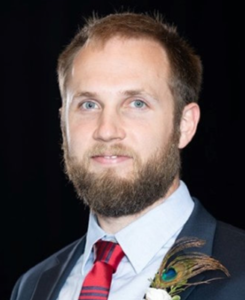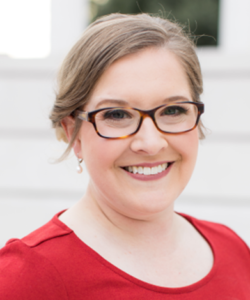
In November of 2020, Sydney transitioned from a 4-H Youth Development agent to an Education, Innovation & Support Agent. This is the newest program area within SC State University’s 1890 Research & Extension Service. She has worked with the College and Career Readiness Programs such as College 101 Workshops, Helping Youth Pursue Education (HYPE), and Youth Book Clubs. She also assists with their Agriculture Innovation Scholarship where there are over 50 students in our 2nd year received full scholarships to attend SC State and pursue a degree in Agriculture. Currently, Sydney also serves as a campus advisor for Minorities in Agriculture Natural Resources and Related Sciences (MANNRS). She is a 2019 Graduate of Leadership Orangeburg and a participant in the 2021 class of Leadership South Carolina. Sydney also serves on the Board of Directors for Why Not Young Lives, a 501c3 committed to providing educational resources to underserved communities as the Community Liaison.





 Zack Snipes, Charleston County Extension agent, and others get the same call over and over each year: how much liquid fertilizer should I be using on my strawberries and on other high-value crops? Most extension agents then pull off on the side of the road and do some calculations and then come up with an answer for their client. And then, just as quickly as that calculation is done, another call from a different grower with the same question. This process repeats for three months or so. Most liquid fertilizer recommendations are written in pounds of product per acre, making one scratch their head when the product you are using is a liquid. Zack Snipes, Justin Ballew, and Rob Last began exploring options on how they could easily calculate these recommendations for growers. They quickly came up with an excel file that gave an easy way to calculate the amount of fertilizer to use on certain crops. The only problem with what they came up with is that it was a clunky excel file and would not be easily accessible in the field for farmers. They began talks with Dr. Kendall Kirk, an agricultural engineer at Edisto Research Center. He began developing a web-based app that was easily assessable and easy to use that used our calculations. After adding fertility recommendations from the Southeastern Vegetable Crop Handbook that included how much fertilizer to deliver at varying times during a plant’s development, they also added other features like the option to add customizable fertilizer densities and crop acreage. The tool tells farmers how much fertilizer to use, when to use it in a crop’s development and is tailored to their fertilizer and acreage. There is no second guessing with the tool. You enter your parameters, and the tool spits out exactly how much to use and when. Mazzei, the worldwide leader in fertilizer injectors, reached out recently to ask if they could add the calculator to their website. In the last 30 days, the calculator has been accessed by 248 users from 34 countries and 33 U.S. states; 44 of these users were from South Carolina.
Zack Snipes, Charleston County Extension agent, and others get the same call over and over each year: how much liquid fertilizer should I be using on my strawberries and on other high-value crops? Most extension agents then pull off on the side of the road and do some calculations and then come up with an answer for their client. And then, just as quickly as that calculation is done, another call from a different grower with the same question. This process repeats for three months or so. Most liquid fertilizer recommendations are written in pounds of product per acre, making one scratch their head when the product you are using is a liquid. Zack Snipes, Justin Ballew, and Rob Last began exploring options on how they could easily calculate these recommendations for growers. They quickly came up with an excel file that gave an easy way to calculate the amount of fertilizer to use on certain crops. The only problem with what they came up with is that it was a clunky excel file and would not be easily accessible in the field for farmers. They began talks with Dr. Kendall Kirk, an agricultural engineer at Edisto Research Center. He began developing a web-based app that was easily assessable and easy to use that used our calculations. After adding fertility recommendations from the Southeastern Vegetable Crop Handbook that included how much fertilizer to deliver at varying times during a plant’s development, they also added other features like the option to add customizable fertilizer densities and crop acreage. The tool tells farmers how much fertilizer to use, when to use it in a crop’s development and is tailored to their fertilizer and acreage. There is no second guessing with the tool. You enter your parameters, and the tool spits out exactly how much to use and when. Mazzei, the worldwide leader in fertilizer injectors, reached out recently to ask if they could add the calculator to their website. In the last 30 days, the calculator has been accessed by 248 users from 34 countries and 33 U.S. states; 44 of these users were from South Carolina. Faith Isreal has been actively utilizing her leadership skills from EELI. She is the President-Elect for Extension Senate and an active student within Clemson’s Human Resources CU Grow Professional Development program. She has developed and delivered live and on-demand webinars on the topics of “Food Safety During a Pandemic”, “Food Safety for Donated Foods” and, “Food Safety & Nutrition on a Budget” with over 100 participants and growing. The “Food Safety During a Pandemic” webinar addressed the growing concerns of consumers regarding food. Basic information about coronavirus, recommendations for prevention, food safety, and resources for safe food practices were presented. Faith has been leading within the Food Systems and Safety in-service team meetings by creating a state-wide Food Systems and Safety Program team needs assessment through Qualtrics. The online survey provides the discovery of community’s needs for enhanced programming and resources. Most recently, she delivered a Food Photography and Styling training with her skills to help promote and captivate current and future audiences to utilize the information and resources of Extension through social media. Using relevant imagery through Extension social media outlets allows the audience to gain awareness, establish loyalty, and communicate research-based information to the citizens of South Carolina and beyond in a way that is consistent with Extension branding.
Faith Isreal has been actively utilizing her leadership skills from EELI. She is the President-Elect for Extension Senate and an active student within Clemson’s Human Resources CU Grow Professional Development program. She has developed and delivered live and on-demand webinars on the topics of “Food Safety During a Pandemic”, “Food Safety for Donated Foods” and, “Food Safety & Nutrition on a Budget” with over 100 participants and growing. The “Food Safety During a Pandemic” webinar addressed the growing concerns of consumers regarding food. Basic information about coronavirus, recommendations for prevention, food safety, and resources for safe food practices were presented. Faith has been leading within the Food Systems and Safety in-service team meetings by creating a state-wide Food Systems and Safety Program team needs assessment through Qualtrics. The online survey provides the discovery of community’s needs for enhanced programming and resources. Most recently, she delivered a Food Photography and Styling training with her skills to help promote and captivate current and future audiences to utilize the information and resources of Extension through social media. Using relevant imagery through Extension social media outlets allows the audience to gain awareness, establish loyalty, and communicate research-based information to the citizens of South Carolina and beyond in a way that is consistent with Extension branding. Dawn Stuckey is a believer in young people and their ability to create a positive change in the world. As the Hampton County 4-H Youth Development Agent, she works to lead the Hampton County 4-H Program to fulfill its motto “To Make the Best Better.” In addition, to volunteer training and management, Mrs. Stuckey delivers a variety of leadership, personal development, STEM, agriculture, and natural resource programs. She also serves as the Savannah Valley Region Poultry Project Coordinator. She has not missed a beat with programming, in fact she has been busier than she was prior to the pandemic. She has worked with Farm Bureau District staff to develop a “Story Time with Clem Clover” program for her region. All counties now receive Ag in the Classroom Book of the Month subscriptions, and she provides live readings and hands-on activities virtually to classrooms. Clubs in both counties completed the Get Experience in Mindfulness program from the University of Delaware and now begin each meeting with a mindfulness experience. Congratulations to Dawn for her 2020 Community Service Award from the Hampton Chamber of Commerce!
Dawn Stuckey is a believer in young people and their ability to create a positive change in the world. As the Hampton County 4-H Youth Development Agent, she works to lead the Hampton County 4-H Program to fulfill its motto “To Make the Best Better.” In addition, to volunteer training and management, Mrs. Stuckey delivers a variety of leadership, personal development, STEM, agriculture, and natural resource programs. She also serves as the Savannah Valley Region Poultry Project Coordinator. She has not missed a beat with programming, in fact she has been busier than she was prior to the pandemic. She has worked with Farm Bureau District staff to develop a “Story Time with Clem Clover” program for her region. All counties now receive Ag in the Classroom Book of the Month subscriptions, and she provides live readings and hands-on activities virtually to classrooms. Clubs in both counties completed the Get Experience in Mindfulness program from the University of Delaware and now begin each meeting with a mindfulness experience. Congratulations to Dawn for her 2020 Community Service Award from the Hampton Chamber of Commerce! Extension Agent Cornelius Hamilton, has been instrumental in coordinating, implementing, and delivering services and resources that have a positive impact on the communities in Hampton and surrounding counties in the Low Country region with the SC State University 1890 Extension Program. In preparation for the transition for alternative program deliveries, Hamilton was assigned to the 1890 Alternative Service Delivery Team which was charged with developing a plan of action for delivering program and services during the pandemic. Hamilton took a leadership role in identifying and coordinating content for the 1890 @Home Video Series. The videos are designed to provide content relative to the concerns of individuals and families at home. Video topics include Handwashing Tips, Home-Schooling Tips, Home Gardening Basics, and Staying Active at Home Basics! As the video series began to expand the content, Hamilton coordinated a networking partnership with a local television network to have the videos broadcast on their community channel. This ensured that network subscribers’ population of approximately 10,000 would have daily access to the videos. The 1890 @Home Video Series can be found on the SC State University 1890 social media accounts which include YouTube, Facebook, and Instagram. Hamilton also partnered with the Hampton County First Steps Organization to conduct Financial Education Workshops with their Participating Parent Group and covered topics on Money Values & Influences, Income & Expenses, Banking, and Spending & Savings Plans.
Extension Agent Cornelius Hamilton, has been instrumental in coordinating, implementing, and delivering services and resources that have a positive impact on the communities in Hampton and surrounding counties in the Low Country region with the SC State University 1890 Extension Program. In preparation for the transition for alternative program deliveries, Hamilton was assigned to the 1890 Alternative Service Delivery Team which was charged with developing a plan of action for delivering program and services during the pandemic. Hamilton took a leadership role in identifying and coordinating content for the 1890 @Home Video Series. The videos are designed to provide content relative to the concerns of individuals and families at home. Video topics include Handwashing Tips, Home-Schooling Tips, Home Gardening Basics, and Staying Active at Home Basics! As the video series began to expand the content, Hamilton coordinated a networking partnership with a local television network to have the videos broadcast on their community channel. This ensured that network subscribers’ population of approximately 10,000 would have daily access to the videos. The 1890 @Home Video Series can be found on the SC State University 1890 social media accounts which include YouTube, Facebook, and Instagram. Hamilton also partnered with the Hampton County First Steps Organization to conduct Financial Education Workshops with their Participating Parent Group and covered topics on Money Values & Influences, Income & Expenses, Banking, and Spending & Savings Plans.